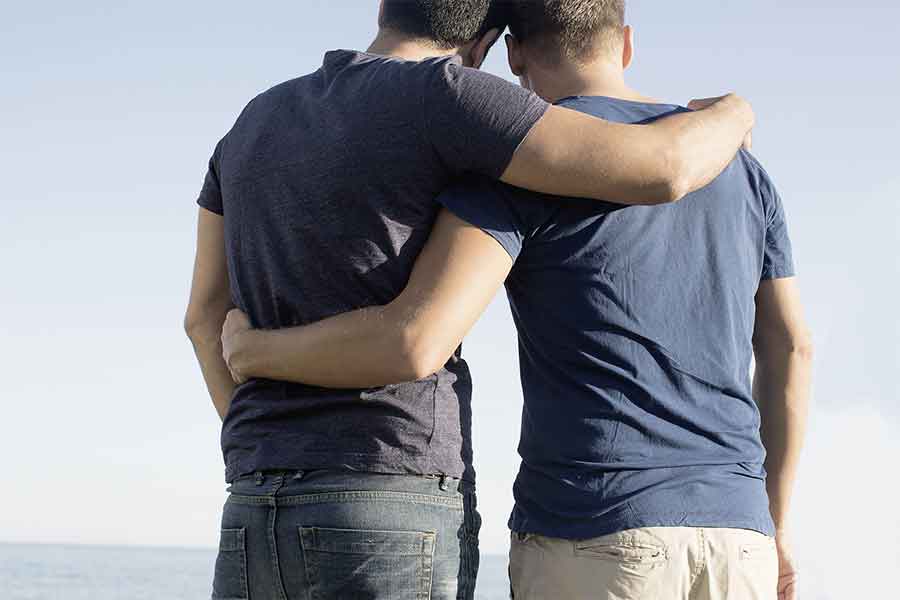GAY HAPPINESS – BUILDING YOUR SELF-ESTEEM
As said in a previous article, true gay happiness can only be found after you have delved within yourself to find your unique strengths and abilities. Only if you know them, develop them, use them creatively to live a unique life, and start to use them for the greater good of the community, will you reach the ultimate form of happiness. However, the sad truth is that most people never reach ultimate gay happiness. They get stuck in their own fight for survival, their own inner emotional battles, and their own insecurities. People are often so busy trying to overcome their insecurities that they never reach a healthy self-esteem, and without a healthy self-esteem there can be no growth.
If you could only forget the issues you gathered through the years, if you could only lay down the emotional injuries of the past, and if you could only work through your uncertainties, you can become a unique, actualized person – a treasure for everybody around you. But instead of leaving the battles of the past behind, many people fight them over and over again in their minds. All of us can be so much more. We are all unique, we all have something to share, and we all can give something special to the community around us. To get that far, you first have to defeat your insecurities and reach a healthy self-esteem. So how do you do that? It is a process that is easier said than done, but the following through with the following steps can help send you in the right direction:
1. Make a list of your best qualities. I know how difficult it is for a person with a low self-esteem, but give it a try. Stop thinking about trivialities like your weight, your age, your hair, your face, your job, your house, your earnings, etc. These things aren’t qualities – they get lost over time. Loyalty, friendliness, humor, and dependability are qualities that are timeless.
2. Do not compare these abilities or qualities with those of other people you know. This isn’t a race, and nobody is competing to be the “most” unique person on the planet – unique is unique – and we are all equally unique with unique qualities.
3. Surround yourself with positive people who do not put you down, but help you to grow. The moaning crowd will always be among us, but don’t give into its negativity. Some people have a solution for every problem and others have a problem for every solution – stick to the first group.
4. Grow by reading books, taking courses, and attending workshops that positively influence your life. The difference between happy people and unhappy people often lies in their perspective on life. The one counts all the miseries and the other counts all the good things that have happened. Often, they had the same kind of life, but the one is happy with his, while the other is not.
5. Don’t give in to negative self-talk. If you tell yourself how stupid you are, you start to believe it, and in time you will actually become stupid. It sounds silly, but Woody Allen once said that 80% of success is just showing up. Who shows up? The one who believes that she can.
6. If people give you a compliment, say thank you and file what they said. If people criticize you, learn from what they said and forget about it. Most of the criticism that I have heard in my life has come from people who never tried to do it themselves.
7. Remember your successes and learn from your mistakes. Everybody falls down at some stage, but it is those who get up that finish the race. Every mistake teaches you how not to do it in future.
8. Be yourself. Never try to be somebody else. You can be the best you, but only the second best someone else. Remember that 50% of people will like you and 50% will not. If you try to be someone else, the percentage stays the same, so you might as well stick to who you really are.
9. Get involved in organizations that help others. The true meaning of life lies in the things we do for others. The moment you notice the miseries others experience, you will be thankful for what you have.
10. Never back down from a challenge if it is something you can do. If you know who you are, you know what you can do. Do the things you can and leave the rest to the people with other abilities. Your self-esteem is based on the things you can actually do for others. People who think they know everything or think they can do everything normally have a very low self-esteem. They can’t take the idea that anybody could be better than they are. If you know who you are, know what you can do, and accept what you can and cannot do, you don’t have to pretend to know it all.
As I said before, building your self-esteem is a process, and it takes time. Don’t try to change a lifetime of bad feelings about yourself in one day.
The post Gay Happiness – Building Your Self-Esteem appeared first on Relationship Development and Transformation.
DR. BRAND DOUBELL
Dr. Brand Doubell is a sexologist, life coach, and relationship therapist in South Africa. He is co-owner and founder of the Cobrastone marriage program, the Cobragay group for helping gay people with rejection, and The Happy Clinic. He studied theology, philosophy and psychology in South Africa and in the Netherlands.
Chat Line Categories







Local & Naughty
Free Local & Naughty chatline welcomes your to the ultimate chatline experience!!! Start chatting with













USA Chat Line Hookup
USA’s Sexiest Free Chat Line For Men and Women! Meet local singles in your area







Sexy Live Hookup
Sexy Live Free Hookup is all about fun! This is the quickest route to finally













College Party Line
College Party Lines is a free place where college girls and boys can meet and












